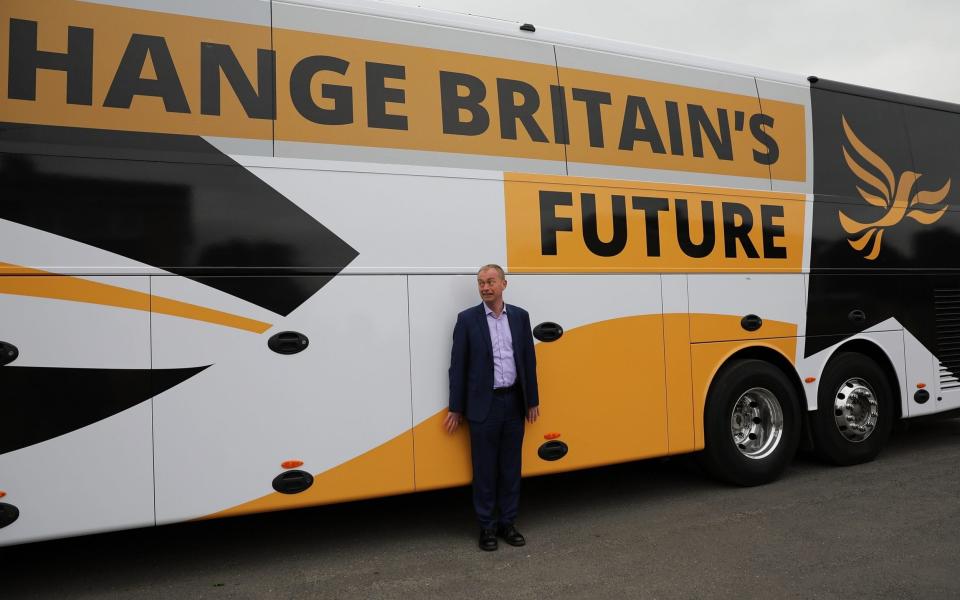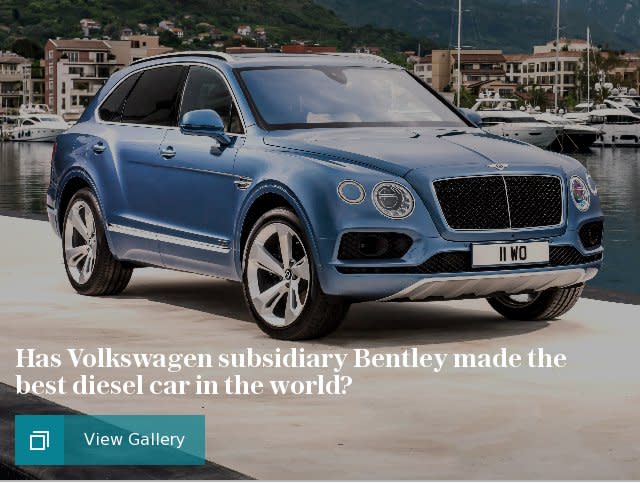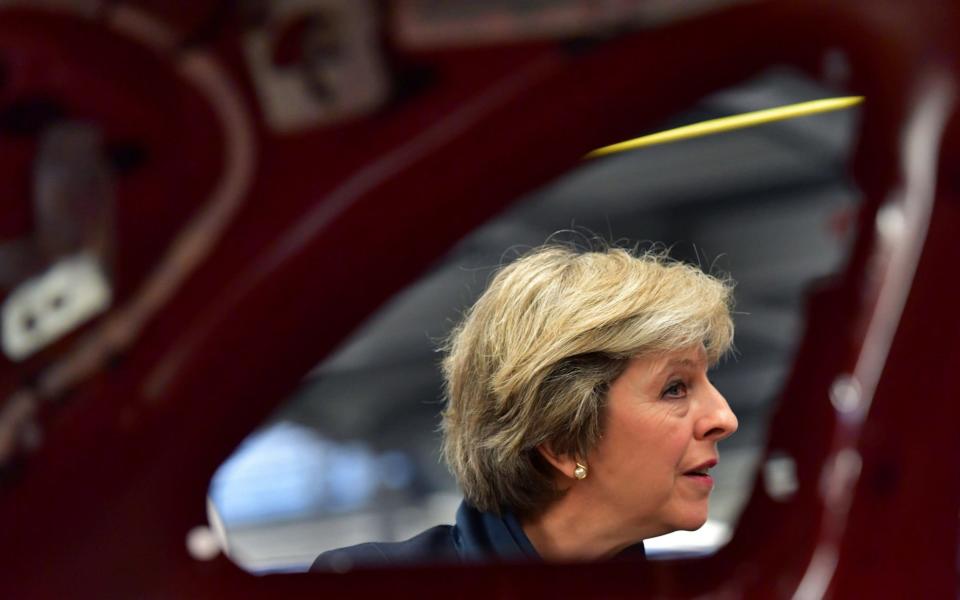Polling day – here's what the Labour, Conservative and Lib Dem manifestos mean for motoring

Brexit, jobs and the environment are three key battlegrounds in the 2017 general election, and the motor car occupies centre stage in each arena. Our automotive industry employs over 800,000 people, it exports to over 130 countries around the world, and the big brands that call Britain home – Land Rover, Jaguar, Aston Martin, Rolls-Royce and Bentley – have long been symbols of our national identity.
This industry is emblematic of our relationship with Europe, too. Complex supply chains are woven through national borders, and foreign companies – namely Nissan, Toyota and Honda – build global models in Britain for export to the EU, as well as North America and the rest of the world. More than half the cars we build here are destined for export to Europe. Many of the 800,000 people employed in this industry are understandably worried about their jobs.
On a consumer level, cars are essential. Millions of Britons live too far from public transport networks to be without a car; from the English counties to the Scottish Highlands, the automobile takes people to work, children to school, and goods to shops. Communities depend on the affordability and quality of road transport: both inside and outside the nation's cities, the road is our most important transport network.
Then there's the environment. Road vehicles are responsible for a vast amount of pollution, especially dangerous NOX and particulate matter generated by diesel engines. But the majority of our buses run on diesel, and thanks to previous tax incentives, so too do a large proportion of private cars. Untangling this deadly mess will be costly and complex.
There's obviously far more at stake in this general election than a diesel scrappage scheme. But the Telegraph motoring desk has a rather specific brief. We've trawled through the manifestos of the main political parties to find out how they will invest in Britain's road infrastructure, and what the future might look like for car drivers under each government.
Liberal Democrats

The Liberal Democrats have a section in their manifesto called “Clean air and green transport”. In it, they say that air pollution contributes to 40,000 premature deaths per year, and costs the NHS £15bn. They promise to pass a Green Transport Act and introduce an Air Quality Plan, which will include the following:
Diesel scrappage scheme
This idea gets frequently suggested by politicians of all parties. In recognition of the fact that diesel cars emit pollution that is locally dangerous to humans (as opposed to the wider environment, which is more affected by petrol cars) the Liberal Democrats will incentivise owners of diesel cars to have them scrapped. A scheme like this, if properly implemented, would probably have short-term increases in urban air quality, but it isn’t without its problems.
Ban on diesel car sales by 2025
Like the diesel scrappage scheme, the Liberal Democrat’s promise to ban diesel car sales by the year 2025 has been made in response to the dangerously dirty air in British towns and cities. The manifesto promises a ban on “the sale of diesel cars and small vans in the UK” – a move that could increase the amount of CO2 generated, which would simply substitute one type of pollution for a different type of pollution.

Taxis and buses to be low-emission in five years
The Liberal Democrat manifesto states that “all private hire vehicles and diesel buses licensed to operate in urban areas to run on ultra-low-emission or zero-emission fuels within five years”.
This is an interesting point for a number of reasons. Nearly all buses run on diesel, so it’s not clear why the document specifically refers to “diesel buses” unless it’s excluding diesel-electric hybrids. Nor is it clear whether the Liberal Democrats are hoping to replace these buses with more efficient ones, or modify them to run on a different fuel. Either way, there are over 40,000 buses in Great Britain, almost half of which are in London and other metropolitan areas in England. That’s a lot of buses – a Liberal Democrat government will need to replace around ten every day in order to meet this five-year target.
Taxation reform
The Liberal Democrat’s manifesto includes a promise to “reform vehicle taxation to encourage sales of electric and low-emission vehicles”. The system that applied until this April arguably already did this by taxing vehicles on their CO2 output, but recent changes have reduced this impact. Any new taxation system will have to carefully balance the need to cut diesel emissions with the need to cut CO2 emissions. Click here for a full explanation of how vehicle tax works now.
Electric vehicle infrastructure
The Liberal Democrats also promise to develop electric vehicle infrastructure, crucially “universal charging points”. Many electric and plug-in-hybrid vehicle users will be aware of the frustrations caused by our limited charging network, and the incompatibility of different services. A central approach to electric car charging infrastructure could prompt a significant uptake of electric cars – though there’s still the question of how the electricity is generated.
Hydrogen
Further down in the “low carbon energy and green jobs” section, the Liberal Democrats promise to “support investment in cutting edge technologies” – including hydrogen. Hydrogen fuel cell cars are zero-emission (or rather, they emit only water) and hydrogen is a fuel that, in theory, can be generated effectively and efficiently using green energy.
Labour

The Labour manifesto includes a section on ‘Transport’, in which it promises to “invest in a modern, integrated, accessible and sustainable transport system that is reliable and affordable”. Much of it focuses on public transport, with plans to renationalise the railways and create municipal bus companies. In fact, the whole document only mentions the word “cars” once: “Our [Labour’s] plans will encourage people to get out of their cars, for better health and a cleaner environment.”
Road safety targets
Labour will “reset the UK’s road safety vision”; this will include a target of no road deaths, but doesn’t include a timeframe. The “reintroduction of road safety targets” and “bold measures” also don’t offer much detail but it’s refreshing to see a slant on transport that doesn’t revolve entirely around emissions.
5G coverage on major roads
The Labour manifesto promises that “all major roads and railways” will have “uninterrupted 5G coverage”. 5G is the next generation of mobile internet (most mobile phones now use 4G) and will enable the growth of new car technology. In particular, driverless cars are likely to depend on 5G – this application is likely to drive significant investment in improved connectivity.

Ultra-low emission vehicles
In its manifesto, Labour pledges to “position the UK at the forefront of the development, manufacture and use of low emission vehicles, supporting the creation of modes of transport through investment in low-emission vehicles”.
Any new low-emission cars would join Toyota’s Auris hybrid and Nissan’s all-electric Leaf in being UK-built. In addition to the huge global firms there are also smaller British outfits, such as the Welsh firm Riversimple, making zero-emission cars.
Retrofitting diesel buses
“We will retrofit thousands of diesel buses in areas with the most severe air quality problems to Euro 6 standards.” It’s important to remember that Euro 6 standards don’t compare with low or ultra-low emission standards, and that diesel-powered buses will still be generating dangerous particulates.
Conservative

“Brexit will define us: our place in the world, our economic security and our future prosperity,” states the opening page of the Conservative manifesto. This is certainly true of the UK's automotive industry, which depends upon unrestricted access to the single market of Europe for survival. More than three quarters of SMMT members (77 per cent) said that staying in Europe is best for their business when surveyed in 2016.
Supporting car manufacturing
The Conservatives promise to "build on the success of world-beating sectors such as car and aero manufacturing". It's hard to avoid thinking about this in terms of Brexit, given the opposition to it felt by the automotive industry. At least 10 per cent of people employed in the UK's car making industry are from elsewhere in the European Union.
All cars zero-emission by 2050
Well, specifically the manifesto says "almost every car and van" to be zero-emission by 2050. That's an awfully long way away, and the word "almost" should raise an eyebrow, but it's nevertheless an ambitious target. More immediately, the Conservatives promise to invest £600m by 2020 "to help achieve it [the 2050 target]". We expect that some of this money would be spent on scrappage schemes and other incentives to encourage drivers into low-emission vehicles, but some existing schemes have been eroded over the past few years of Conservative government.
More low-emission buses
The Conservatives "will invest in more low-emission buses". Questions like "how many?" and "when?" are unanswered, but it's certainly true that buses are a significant contributor to urban pollution. There's a difference between "low-emission" and "zero-emission"; some people feel that certain hybrid buses haven't delivered on their low-emission promises anyway.

Community minibuses
Most of the country, geographically speaking, is pretty inaccessible in terms of public transport. In rural areas, and even a lot of suburban places, life without a car is difficult. The Conservative pledge to introduce community minibuses to rural areas could have an effect on some households' dependence on private cars.
Uninterrupted mobile phone signal on major roads
The Conservative manifesto includes a promise to extend mobile phone signal to 95 per cent of the UK by the year 2022. By this time, the Conservatives also promise "uninterrupted mobile phone signal" on all major roads. There's no mention of what type of "mobile phone signal" they mean here, as this term includes increasingly useless EDGE and GPRS coverage, but the manifesto goes on to promise 5G to the "majority of the population" by 2027.
Digital infrastructure
"We are leading the world in preparing for autonomous vehicles," booms the Conservative manifesto. We can't vouch for the validity of that statement, and it's immediately followed with a promise to "press ahead with our plans to use digital technology to improve our railways, so that our roads and tracks can carry more people, faster, more safely and more efficiently".
Programme of support
Within the 'digital infrastructure' section, the Conservative manifesto mentions autonomous vehicles and electric vehicles. The paragraph ends with a promise a "programme of support" creating "a better environment for them [new technologies] to be tested in the UK" – potentially pointing to permission for autonomous and driverless cars and lorries to be tested on British roads.


 Yahoo News
Yahoo News 